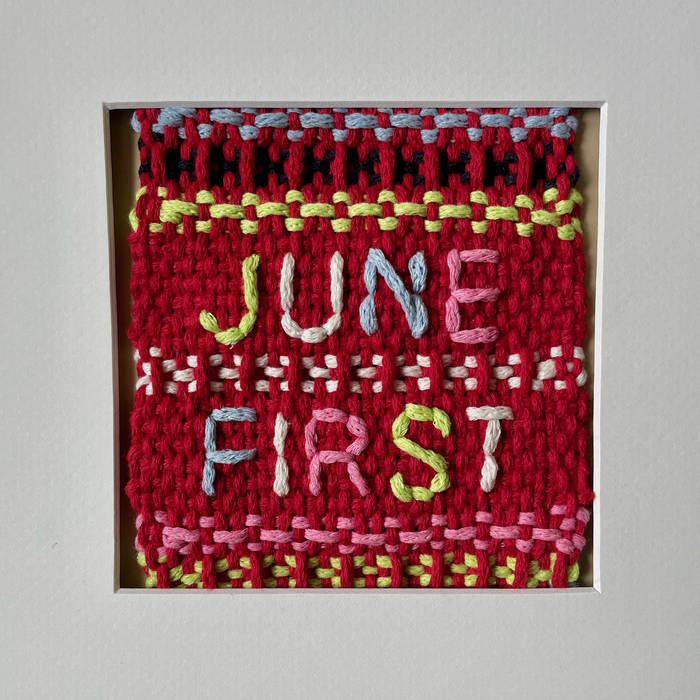
by maggie astrid clark
Unless you’re really dialed into the local music scene (although, given that you are currently reading Stylus Magazine, this might be a fair assumption!), it would have been easy to miss a pair of records released last year by Vivat Virtute. You might not know the name, but you definitely know its members – Winnipeg indie rock mainstays Christine Fellows and J.S. Fellows.
“Hang on,” you might be inclined to interject, “J.S. Fellows? Who’s that?”
I’ll give you a hint: the “J.S.” stands for “John Samson.” The former Weakerthans singer has been conspicuously absent from the music industry for a few years now: their last solo album, Winter Wheat, was released in 2016 and they resurfaced briefly with the 2020 singles “Millennium for All” and “Fantasy Baseball at the End of the World” – the latter of which, I submit, should replace the dreadful, insipid “O Canada” as the song played at the start of every Goldeyes game. According to the author bio of his September 2023 article on prison abolition for Rupert’s Land News, he now teaches creative writing at the Stony Mountain Institution.
John’s apparent retreat from the music biz is hardly surprising. As Keegan Bradford wrote last year for Stereogum, he “famously does not enjoy touring or press.” Given my unfamiliarity with John-the-person, I can’t state with any certainty what they do or don’t “enjoy,” but I won’t deny that this tracks with my impression of John-the-writer-and-performer. It would certainly explain why the Vivat Virtute records were released only on Bandcamp and received no publicity or press coverage – at least until I decided to scupper that by writing about them for this very magazine!
Hold Music (released February 22, 2023) is a first in the discography of either Christine or John – an album consisting almost entirely of ambient instrumentals. The album is admirably varied in sound and scope. “Rockwood Pickleball League,” for example, is a piece best described as “K.K. Slider cowboy music,” while piano-led compositions like “Dugout Phone” and “Stony Mountain Unit 6” evoke comparisons to Érik Satie or Ryuichi Sakamoto in their plaintive beauty. (Those were the first two pianists I could think of – how’d I do?) Christine Fellows, ever the polymath, is no stranger to the art of the wordless tune: she included several on her studio albums Paper Anniversary and Nevertheless. Her performance at last year’s Cluster Festival – her first since the beginning of the pandemic – was a highlight of my 2023 and was accompanied by a mesmerising collage of her stop-motion animations. You really had to be there and I’m sorry if you weren’t. Boasting aside, Christine’s return to the genre is a treat for the ears.
The second record, June First (released – well, I’ll let you guess), is a three-song EP performed by John and engineered by Christine. The opener is “Royal Bank of Canada,” a song that I cannot hear without freezing up and crying. Featuring a sparse guitar line and set to the tune of “Eventide” (the usual accompaniment of the Christian hymn “Abide with Me”), it frames RBC’s fossil fuel investments in apocalyptic terms. The Banking on Climate Chaos coalition has recognized RBC as “the worst financier of fossil fuels,” with the bank having issued $41 billion in financing to resource extraction companies in 2022 alone. This reckless pursuit of profit has terrifying consequences for us all. The song reckons with a future in which the company’s headquarters are “emptied by the heat / Fear and starvation rising with the seas / Seeds of disaster sown by RBC.” It is, of course, easy (and fun!) to blame bankers, but the more unsettling implication here is that, as residents of the imperial core, many of us benefit financially from wanton environmental destruction. After all, the Canada Pension Plan Investment Board, a Crown corporation, owns over 2 million shares in RBC. The standard of living that many of us are accustomed to in Canada is paid for, in large part, by the proceeds from such investments. When John sings “Too soon that final audit will begin / Each piece of pipeline multiplies thy sin,” I interpret this as an appeal to every Canadian: this is our responsibility too. Our only hope is to divest from fossil fuels and pray that God forgives us for what we have done to each other and to this earth.
The subject of the next song, “Budget Delegations,” is familiar terrain for John and Christine, a companion piece of sorts to “Millennium for All.” In it, John condemns the priorities of Winnipeg’s municipal government, lamenting that most of our city’s budget is spent on “roads and police, and police and roads.” As a result, we are left with “no room for research, no food or drink, no thinking something new / No time for anyone trying to show us what love can do.” At the time of writing, my thoughts turn to the December 31 shooting death of Afolabi Stephen Opaso, a 19-year-old Nigerian international student studying at the University of Manitoba, by Winnipeg police. (Of course, the phrase used above – “shooting death” – embodies what John identifies in the song as the “press-release framing” preferred by our city’s pigs and their stenographers at the local papers. Perhaps “murder” would be more apt.) Fadi Ennab wrote that, according to Opaso’s friends, “he struggled under the pressure of being far from home and with finding affordable housing, and was working two jobs.” This brutal precarity is hardly a unique story among our country’s international students and temporary foreign workers. Neither is the police violence deployed against the most marginalized people in our communities. The story is a tragic reminder of the human cost of our ruling class’s crusade to defund life-sustaining social supports in favour of yet more policing and yet more money for the road construction lobby.
I wanted to dive into June First’s final track, “All My Ex-Boyfriends Are You” – a piece that is simultaneously charming and upsetting, heartbreaking and funny – but I think the listener is best served to go in blind. Despite the heavy subject matter of the EP’s songs, it is something of a relief, in our highly depoliticized climate, to know that the tradition of polemical folk ballads is alive and well. But I wish to close by returning to the final song of Hold Music, and the only one to contain lyrics, “Do Not Worry.” (If you’re wondering why I’m telling the story out of order here, let me assure you that this is on purpose. I wanted this piece to have a more satisfying narrative arc.)
Although the production is a touch too reedy for my taste, the song is a gorgeous meditation on the inevitability of death, the joys of life, and the persistence of the human spirit. I tried fashioning its central lyric (“Today’s trouble is enough for today”) into a self-affirming mantra during a period of severe depression back in September. A few days later, I was referred to the Crisis Stabilization Unit in the vain hope that spending a few days in the loony bin would cure me of my persistent suicide ideation. (It did not.) The mantra didn’t really work. But I’m still here, so maybe, on some level, it did. I haven’t given into my despair just yet. The reason why can be found in another J.S. Fellows song I mentioned earlier, “Fantasy Baseball at the End of the World”:
“I’m going outside / I’m gonna help organize / Something better, something beautiful.” I invite you all to do the same.

